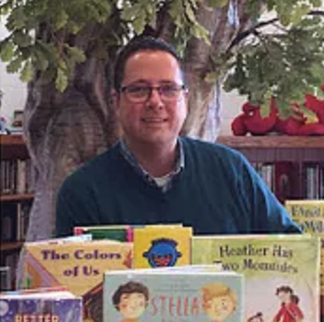You’ve got to be taught to hate and fear.
You’ve got to be taught from year to year.
It’s got to be drummed in your dear little ear.
You’ve got to be carefully taught.You’ve got to be taught before it’s too late.
Before you are six or seven or eight
To hate all the people your relatives hate.
You’ve got to be carefully taught.
You’ve got to be carefully taught.-Rodgers and Hammerstein, South Pacific 1949
Nearly seventy years ago, Richard Rodgers and Oscar Hammerstein wrote a song for their new musical, South Pacific. The song in the second act, Carefully Taught, explained that children aren’t born with hatred for or fear of others. They are taught to be judgemental. They are taught to not be accepting. They are taught to be hateful.
Children are watching. What are they learning? What are they being carefully taught?
About a month ago, my wife and I decided to go to see The Greatest Showman. It was an afternoon showing and there were quite a few kids in the theater. In fact, there was a lady with her two kids, who looked to be 8-10 years old, sitting right next to us. As always, there were previews prior to the movie. In one of the previews, the teenage boy character was coming out to his parents. The family on the screen was having a loving, understanding conversation. The lady next to us loudly ordered her kids, “plug your ears…now!” The kids looked confused, but did as they were told. Sadly, it didn’t end there. A minute or so later, when it looked as if the boy character might kiss another boy character, the lady actually reached over and covered her kids’ eyes. Ears plugged, eyes covered, she was bound and determined to make sure that her kids did not witness this preview…and quite honestly, make sure those around her knew exactly how she felt.
As the feature movie started, I couldn’t help but notice that the eyes and ears of the children were not covered during violence. They were not covered during hatred. They were not covered during infidelity. In addition to being angry, my heart broke for these kids. They were being taught to be judgemental…carefully taught to hate.
I realized once again, how so very important it is for us, as educators, to make sure that all of our students not only see themselves in the books we choose to read, but that they also see ALL others in the books we share. Our libraries and classrooms may be the only place where these kids will learn empathy toward and acceptance of others.
Here are some picture books that I would have loved to share with those kids at the movie.

Families, Families, Families
by Suzanne Lang, illustrated by Max Lang.
Through a variety of family portraits, fun and silly animals are used to show all types of family structures. There is no “right” family. They come in all shapes and sizes, but loving each other is what matters the most.
Stella Brings the Family
by Miriam B. Schiffer, illustrated by Holly Clifton-Brown
What is Stella to do? Her class is having a celebration for Mother’s Day and she doesn’t have a mother. She has a Daddy and a Papa who love her very much. It’s up to Stella and her loving circle of support to come up with a solution for her situation….and they do!
Heather Has Two Mommies
by Lesléa Newman, illustrated by Laura Cornell
When Heather goes to school, she is asked about her Daddy. Heather has two Mommies and doesn’t have a Daddy. It isn’t until her classmates are drawing pictures of their families that Heather realizes just how different every family is. Her teacher explains that “the most important thing about a family is that all the people in it love one another.”

The Family Book
by Todd Parr
This book is a celebration of families…all families. Families with one mom, one dad, two moms, two dads. Big families, small families…all families are special!

And Tango Makes Three
by Justin Richardson and Peter Parnell, illustrated by Henry Cole
Based on the true story of Roy and Silo, two male chinstrap penguins at New York’s Central Park zoo, this book shares how the love and caring of two male penguin parents allowed for the hatching of Tango, a female chinstrap chick.
We must be diligent. Our students must be provided with literature that represents ALL people. Our students must be a part of conversations that foster compassion, kindness and acceptance toward ALL people.
They MUST be carefully taught!



